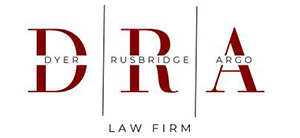What Types of Assets Are Not Transferred Through the Probate Process?
Write a law firm blog post of 350-450 words on types of assets that are not passed on through probate
https://www.justia.com/probate/transferring-property-outside-probate/
When planning for the distribution of your estate, it’s essential to understand that not all assets pass through probate. Probate is the legal process through which a deceased person’s assets are distributed and debts are paid under court supervision. However, certain types of assets are exempt from this process, offering unique estate planning opportunities and considerations. Let’s explore some common examples of non-probate assets:
- Jointly Owned Property: Assets held in joint tenancy or tenancy by the entirety typically pass directly to the surviving co-owner(s) upon the death of one owner. This includes real estate, bank accounts, and investments held jointly with rights of survivorship.
- Assets with Designated Beneficiaries: Accounts such as retirement plans, life insurance policies, and payable-on-death (POD) or transfer-on-death (TOD) accounts allow you to designate beneficiaries who will receive the assets upon your death. These assets bypass probate and are distributed according to your beneficiary designations.
- Trust Assets: Assets held in a trust are managed by a trustee for the benefit of named beneficiaries. Since the trust owns the assets, they are not subject to probate upon the grantor’s death. Trusts offer privacy, flexibility, and control over the distribution of assets.
- Proceeds from Certain Contracts: Assets such as proceeds from a payable-on-death (POD) bank account, retirement benefits, or life insurance policies are considered contractual assets. They pass directly to the designated beneficiaries outside of probate.
- Gifts: Assets that you gift during your lifetime, such as real estate, cash, or investments, are not subject to probate upon your death. However, it’s important to consider the potential impact of gift taxes and ensure that gifts are properly documented.
- Assets Held in a Living Trust: A revocable living trust allows you to transfer ownership of assets to the trust while retaining control during your lifetime. Upon your death, the assets held in the trust are distributed to the designated beneficiaries without going through probate.
Understanding the different types of non-probate assets is crucial for effective estate planning. By strategically arranging your assets and utilizing tools such as trusts and beneficiary designations, you can streamline the distribution process, minimize estate taxes, and provide for your loved ones in accordance with your wishes.
However, it’s essential to consult with an experienced estate planning attorney to ensure that your estate plan aligns with your goals and accounts for any potential legal complexities. With proper planning, you can achieve peace of mind knowing that your assets will be distributed efficiently and according to your wishes, ultimately simplifying the probate process for your loved ones.
https://www.dralaw.com/practice-areas/probate-estate-planning/wills-trusts/

